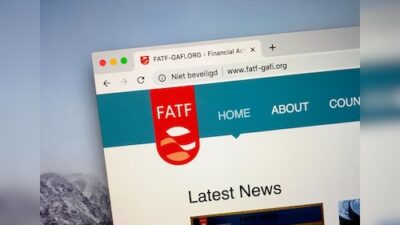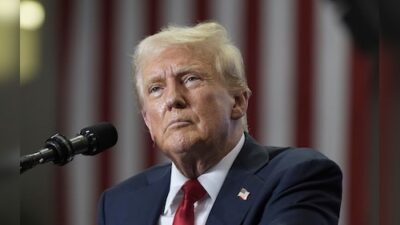On Friday, June 20, Federal Reserve Governor Christopher Waller indicated that tariffs are unlikely to significantly fuel inflation, implying that the central bank may start to reduce interest rates as soon as July. Waller expressed to CNBC’s Squawk Box, “I think we’re in the position that we could do this as early as July,” stressing the importance of taking action, even if the committee ultimately disagrees with his stance.
These comments came after the Federal Open Market Committee’s (FOMC) decision earlier in the week to maintain the federal funds rate at a steady range of 4.25-4.5%, marking the fourth consecutive pause since the December reduction.
Appointed by US President Donald Trump, Waller urged that policymakers should start easing rates gradually, clarifying that inflation currently does not pose a significant economic risk. “If you’re starting to worry about the downside risk [to the] labour market, move now, don’t wait,” he asserted. “Why do we want to wait until we actually see a crash before we start cutting rates?”
While futures markets reacted positively to Waller’s dovish remarks, it remains uncertain how much consensus he will garner from his colleagues. In the most recent FOMC meeting, members, including Waller, voted unanimously to maintain rates. Projections from the Fed’s dot plot reveal notable divergence: seven out of 19 officials predict no cuts this year, two anticipate just one cut, while 10 expect two or more reductions.
Meanwhile, Trump has advocated for a substantial reduction in rates, arguing they should be lowered by at least two percentage points. Prior to the Fed meeting on Wednesday, June 19, he criticized Fed Chair Jerome Powell for not enacting rate cuts, labeling him “stupid.”
Waller, who is considered a potential successor to Powell after his term concludes in 2026, suggested a slow yet intentional approach by the Fed. “You’d want to start slow and bring them down… but start the process. That’s the key thing,” he noted, claiming that the current data no longer supports inaction.
Waller reiterated that any inflationary impact from tariffs is expected to be transient: “It should be a one-off level effect and not cause persistent inflation,” he remarked. “We’ve been on pause for six months… We haven’t seen [a tariff shock]. We follow the data.”
However, Chair Powell continues to advocate for a cautious strategy, highlighting stable labor conditions and the absence of significant inflation spillover from tariffs. As companies reduce existing inventory and indications of declining consumer demand arise, the Fed remains in a wait-and-see stance.
Currently, markets indicate a minimal probability of a rate cut at the upcoming July 29-30 meeting, with the first expected adjustment now anticipated in September, according to CME’s FedWatch tool.
Also Read: Basmati exports to Iran stop, become costlier for West Asia; focus on India-managed Chhabar Port



